You’ve probably heard of bomb-sniffing dogs, police dogs, and service dogs who travel with their humans. But you may not know that dogs have become another line of defense against COVID-19.
“When the pandemic started last spring, it occurred to me early on that dogs might be able to detect the COVID-19 virus,” says Mo Maurer, executive director at Assistance Dogs of Hawaii (ADH). She had led previous research in training dogs for medical bio detection, so she started researching and connecting with international leaders in the field.
She also reached out to The Queen’s Medical Center. They have two hospital dogs and a puppy in training from ADH who bring comfort to cancer patients, those recovering from orthopedic surgery, children visiting family in the hospital, and pediatric patients. Soon, COVID-19 scent detection dogs could provide a minimally invasive approach to screening people as they enter the hospital. “People always smile when they see dogs. They have a calming presence,” says Whitney Limm, M.D., chief physician executive at Queen’s (and an HMSA board member).
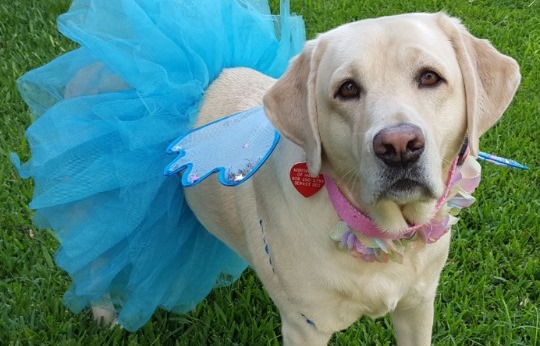
Ipo, based at Queen's Punchbowl
Ahead of the pack
ADH has been training four COVID-19 scent detection dogs ― Sadie, Samson, Tess, and Yuki. Maurer says that in their downtime, the dogs are just like other pets. They live in her house and take daily trips to the beach. But when they’re working, they’re very focused. “They each have their own personality and have different ways of going about it and a different level of intensity,” says Maurer.
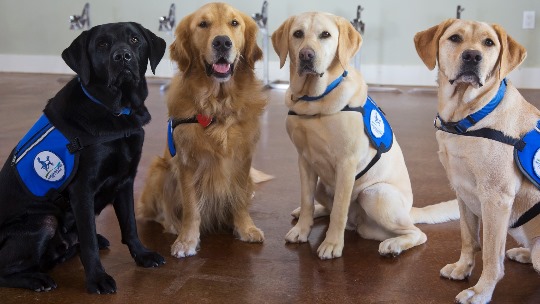
The ADH scent detection team
One of the most difficult parts of training the dogs to detect COVID-19 has been acquiring enough samples. ADH needed samples from a variety of patients who are both positive and negative to ensure the dogs learn to identify the scent of the virus and not the patient.
Queen’s has been doing widespread COVID-19 testing since the beginning of the pandemic. Many residents were afraid to visit the Emergency Department, so they set up testing tents outside at their Honolulu campus and helped patients get tested at urgent care clinics. “We were in a position to screen thousands and thousands of patients to see if they were positive or negative,” says Limm.
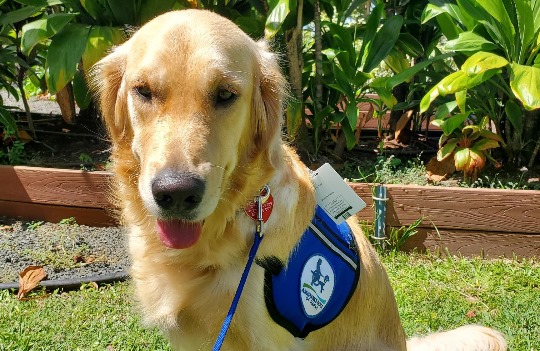
Kula, based at Queen's West
As a result, Queen’s was uniquely well-positioned to send ADH samples to help train the dogs. Since Maurer’s request, they’ve sent hundreds of sweat samples, collected on cotton, to Maui. Because they’re non-aerosol, they don’t transmit COVID-19.
Passing the sniff test
For six to eight weeks, the COVID-19 scent detection dogs participate in the training phase of the study. Then they begin two to four weeks of the double-blinded testing phase. First, positive samples are placed on five detection stands and the dogs are rewarded when they identify that COVID-19 is present. Once they’re able to consistently identify the scent, trainers start mixing in negative samples. The dogs indicate when they sniff COVID-19 and are rewarded if they’re correct.
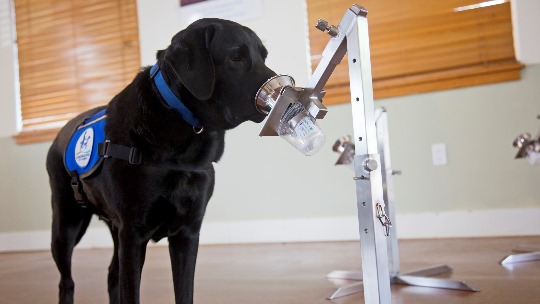
Tess sniffing COVID-19 samples during training
In previous bio detection trainings, ADH’s dogs have identified bacteria samples correctly 99% of the time and ignored negative samples at a rate of 90%. So far, their response to COVID-19 and its variants, has been very promising. “They’ve been extremely accurate. It’s pretty amazing,” says Maurer. “They really enjoy this. It’s a game to them, to search and find something. They really look forward to it each day.”
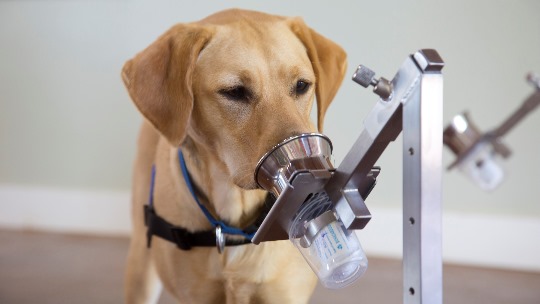
Yuki sniffing COVID-19 samples during training
For Maurer and the team at ADH, this project is a way to help make Hawaii safer from COVID-19. They hope to share their training protocol locally and internationally. They’ve already presented ADH’s work to the Maui COVID-19 Task Force and are in talks with county officials and local airports.
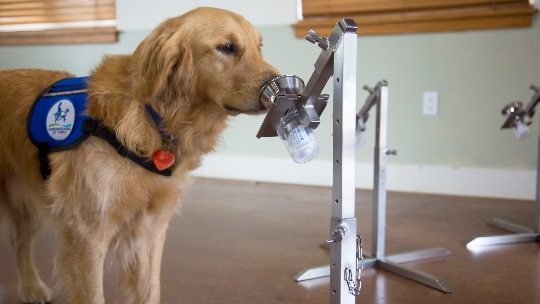
Samson sniffing COVID-19 samples during training
“I think there's a lot of potential for this to be used as an additional screening tool,” says Maurer. “That's our goal. We just want to help our community and do what we can to help stop the spread of this virus.”
Photos: The Queen's Medical Center and Assistance Dogs of Hawaii


.jpg)

